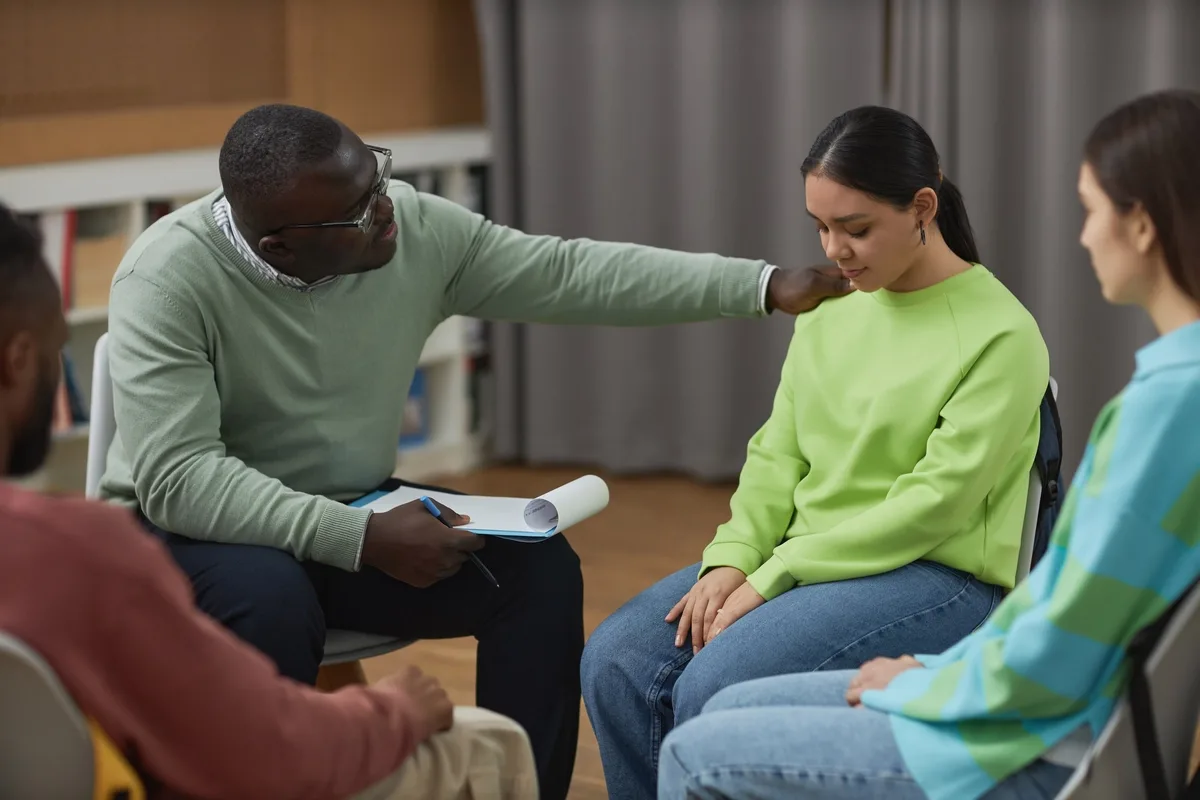24/7 Helpline:
(866) 899-221924/7 Helpline:
(866) 899-2219
Learn more about PTSD Treatment centers in Bruce
PTSD Treatment in Other Cities

Other Insurance Options

Absolute Total Care

Choice Care Network

ComPsych

Magellan

Amerigroup

Coventry Health Care

Regence

WellPoint

Carleon

BlueShield

BlueCross

Premera

Anthem

Aetna

Oxford

Magellan Health

United Health Care

PHCS Network

Group Health Incorporated

Cigna
















































































































